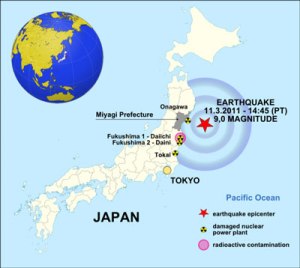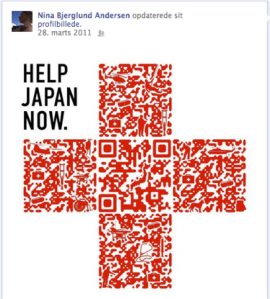Social media and public health is a diverse field, and there is always some new corner to explore! These days I am increasing my knowledge on the use of social media for disaster management and coordination. The reason for this is that I next week will be giving a lecture on the topic to students at the Master of Disaster Management at University of Copenhagen.
It has been exiting to dig into a new field and to experience how social media really presents great new opportunities, but of course also new challenges. Since I haven’t previously worked specifically with disaster management, I choose a few weeks ago to ask my Twitter followers for help on finding good literature and resource people in the field. And once again, Twitter didn’t let me down.
Blogs, website and hashtags
I got a lot of great inputs to blogs, websites, Twitter chats, hashtags and people to follow and hook up with on Twitter (a big thank you to all of you who responded!).
The blogs are a good starting point, especially since most of them offer great links to other resources. The most helpful so far have been the website/blog Social Media 4 Emergency Management. From here there is access to wikis, archives of Twitter chats (#smemchat), videos, blogs etc. on social media and emergency management. The only ‘problem’ with the website is that there is almost too much information.
Another super helpful resource is the blog idisaster2.0 (primarily run by @kim26stephens). It have lots of informative blog posts as well as a good bibliography of selected academic and government resources on social media and emergency management.
Own experiences with disasters and social media?
When I was asked to give the lecture, I hesitated for a moment, because what did I know about emergencies and disasters? Apart from my solid knowledge of social media in public health, including some superficial insight into its role in disasters, I had never had anything to do with disasters or least of all experienced it… However, the later is not true, I quickly realised. I have actually to some extend been in an emergency setting and I have in fact experienced the role of social media in a disaster situation.
Earthquake in Japan in 2011

I was in Japan, when the big earthquake, subsequent tsunami and finally the Fukushima nuclear plant crisis occurred in March 2011. Being relatively far from the epicenter of the disaster (I was based in Kobe in the Kansai region), I wasn’t directly surrounded by flooded buildings, elevated radiation risks or other immediate danger. But I was surrounded by potential danger, by worried friends and family in Denmark and by Japanese friends and colleagues with close relatives in the affected areas.
 Looking back on my Facebook timeline, I can now see how social media actually played an important role for me during the emergency. I used Facebook to assure others that I was okay and kept them updated on my situation. I started following the Danish Embassy in Japan’s Facebook page through which they several times daily shared information about risks, advice on how to act and the organisation of potential evacuation. I encourage the mobilization of emotionally and financial support to Japan by sharing links and QR-codes. And I experienced how a Japanese colleague of mine after days of no contact with her sister living in Sendai where the tsunami hit, finally through Facebook got in contact and found out that her and her were safe…
Looking back on my Facebook timeline, I can now see how social media actually played an important role for me during the emergency. I used Facebook to assure others that I was okay and kept them updated on my situation. I started following the Danish Embassy in Japan’s Facebook page through which they several times daily shared information about risks, advice on how to act and the organisation of potential evacuation. I encourage the mobilization of emotionally and financial support to Japan by sharing links and QR-codes. And I experienced how a Japanese colleague of mine after days of no contact with her sister living in Sendai where the tsunami hit, finally through Facebook got in contact and found out that her and her were safe…
So yes, I have actually experienced a disaster, and experienced how social media can be used in this kind of situation. I plan to share my experiences as a case with the students next week and hope that this real life experience can contribute to the understanding and some discussions.
Your help
Although I already got great tips from people on Twitter, I am still the happy receiver of inputs on social media and emergencies/disaster management. Suggestions on discussion topics, assignments or any other ideas on how to involve the students are more than welcome as are links to guidelines, scientific articles etc.


